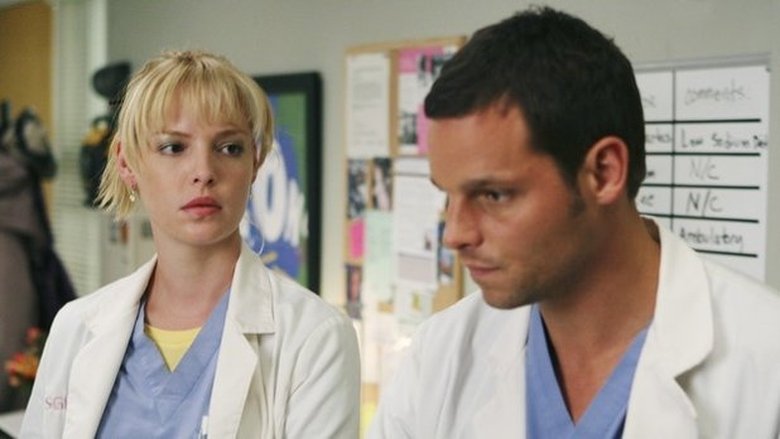
So nothing can truly prepare us for the beautiful, painful things we never imagined possible or the moments no one ever saw coming. They never leave room for the outliers, the geniuses, the miracles because books are black and white, and everything in real life is a messy shade of gray. Webber (voice over): The problem with all the how-to, step-by-step books is they don't take into account the exceptions to the rules. We ignore sleep and friends and food and sex and actual real-life so that we're ready for anything, so we know what to expect and know there's nothing we can't handle. We study for decades and stare down the barrel of worst-case scenarios. Webber (voice over): Scientists devour textbooks and data in an attempt to understand the world to gain confidence or clarity. Is however the hell you want! " Anybody Have a Map Well, I may not be an expert, but I do have some experience with losing people I love.
#GREYS ANATOMY PUTLOCKER SEASON 15 HOW TO#
We all have different ideas about how to honour the dead. Meredith: Every religion, every country, every culture. Especially when it happens to the ones we love. And when it comes, it's clinical, almost routine. But in a hospital, death isn't celebrated. Jokes about it, caresses it, sleeps with it, celebrates it. " Flowers Grow Out of My Grave Meredith: The poet Octavio Paz once wrote, the Mexican is familiar with death. Because lets face it, some problems are way too big to carry on our own. You can only take care of yourself for so long. We have an innate instinct to support each other. I think it's one of the reasons our species has lasted this long. Scientists believe we're biologically programmed to empathize. Some biologists believe it's human nature, the desire to help. Meredith: Surgeons are trained to provide care for others. Unfortunately, caretaking outside of medicine is usually more complicated. Your answer to "How are you doing?" Tells us how good of a job we're doing at taking care of you. But when surgeons ask how you're doing, we generally care about your answer. " Everyday Angel Meredith: Everyday we're surrounded by people who ask how we're doing. And the one thing you can't do with the truth, is hide from it.

Because the truth is going to come out some time. Meredith: My mother said, tell the truth! Just tell the best version of the truth you can. My mother also never told me I had a little sister, so. But you tell them the best version of the truth you can come up with. Momma Knows Best Meredith: When I was little I once asked my mother, how do you tell people such bad news? You tell them the truth, she said. Because our gut is usually what warns us when trouble lies ahead. And it can also serve an important purpose. Meredith: So what about those times when there is no road map? Should we go with our gut then? If instinct is all we have, it's not always a bad thing. So the trick is trying to stay human when we have shut down all those gut feelings, all those messy instincts. When you are looking at that exposed bone, CUT. Don't show fear when faced with uncertainty.

Don't react to bad news in front of patients. A lot of our training is breaking instinct. They needed students to get out of the habit of listening to instinct. Because looking at an exposed bone in an amputation, human instinct is to recoil, not cut. Gut Feeling Meredith: In the early days of medicine, surgical students would perfect their sewing technique on tree branches. But most things are better when they're shared with someone else. And trust me,you can get pretty good at the along thing. Meredith: Why do we often run for the hills when we feel the slightest connection? Why do we feel compelled to fight what we're hard-wired to do? Maybe it's because when we find something or someone to hold onto,that feeling becomes like air.and we're terrified we're going to lose it. So, then why do so many people prefer being alone? Our brains and bodies are actually programmed to seek each other out and connect.

Neurons fire when we talk to someone, think about someone,and they go haywire when we hold someone's hand. A brain study revealed that, when placed in an MRI,a patient's reward center lit up when another person sat in the room. Broken Together Meredith: Just like we need food and water, humans need each other. The insula lights up,and we are compelled to change our lives. But more often than not.the chemicals in our brains control us. Meredith: We'd like to imagine that we're in control. The insula is only about the size of a pea,but what it triggers in our bodies and, by extension, in our lives,can be epic. It's called the insula, and it's where desire starts. Season 15 With a Wonder and a Wild Desire Meredith: There is a portion of the cerebral cortex of your brain, folded deep within an area between the temporal and frontal lobes.


 0 kommentar(er)
0 kommentar(er)
